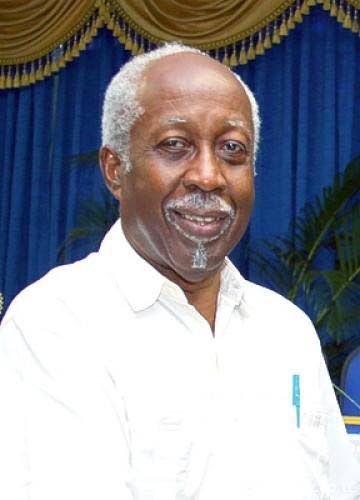Some reflections at sixty

REGINALD DUMAS
Pt I
IN HIS address to an independence youth rally at the Queen’s Park Oval on August 30, 1962, Eric Williams advised that TT, to come into being as a new nation the following day, had to “maintain and develop its political system and its democratic machinery.”
The responsibility of young people in the new dispensation would be “a very heavy one.” Production and productivity were crucial, as was living together peacefully in a society mixed by both race and religion. In this connection, he called on young people to “educate (their) parents. Teach them,” he continued, “to live together in harmony, the difference being not race or colour of skin but merit only, differences of wealth and family status being rejected in favour of equality of opportunity.” One wonders, especially in the light of recent comments, who exactly would be parenting.
Williams stressed adherence to the principles of honesty, and of “scholastic development (as) the salvation (on which) the nation is dependent.” He ended with the much-quoted words: “When you return to your classes after independence, remember, therefore, each and every one of you, that you carry the future of Trinidad and Tobago in your school bags.”
The centrality of education in any country’s socio-economic development cannot seriously be disputed; Williams understood that well. What few, if any, understood at the time was that early childhood education was at the core of that centrality.
But education wasn’t all that concerned Williams. On Independence Day itself he addressed the nation, essentially on the subject of democracy. “The first responsibility that devolves upon you,” he said, “is the protection and promotion of your democracy.” And he went on to define in detail what he understood by the word, including the factor – always important, but especially so today – that democracy meant “equality of opportunity for all in education…”
And this is what he said about our watchwords, Discipline, Production and Tolerance. “Indiscipline, whether individual or sectional, is a threat to democracy. Slacking on the job jeopardises the national income, inflates costs, and merely sets a bad example…That democracy is but a hollow mockery and a gigantic fraud which is based on a ruling group’s domination of slaves or helots or fellaheen or second-class citizens, or showing intolerance to others because of considerations of race, colour, creed, national origin, previous conditions of servitude or other irrationality.” Would you say, using those criteria, that today’s TT is disciplined, productive and tolerant?
But what of the several years preceding independence? Whatever our economic hardships, they were a time (perhaps it was an east-west corridor concentration) when people read and discussed and challenged. Scholarship was respected. Literary and debating societies flourished. There were bookshops, art exhibitions and drama groups, choirs, orchestras. Beryl McBurnie’s Little Carib was already a legend. Anthony Williams was breaking steelband barriers. And there was much more.
In short, a certain intellectual focus and confidence existed. It was therefore understandable that Williams the university professor, in his jousts with the Catholic Church representative, Dom Basil Matthews, in his writings, in his lectures at what he dubbed “The University of Woodford Square,” would find fertile ground. He was suddenly “The Third Most Intelligent Man in the World.” Which two dared precede him I never discovered.
But Williams’s announced vision of societal harmony and progress was not infrequently obscured by the realities of party politics, and by his inability always to distinguish between the lectern and the soapbox. The “University of Woodford Square” was not, after all, Oxford or Howard, and the freedom of expression one might enjoy in an academic environment couldn’t always be felicitously transferred to the hustings.
Thus it was that in April 1958, smarting from the PNM’s defeat in the West Indies federal elections, Williams publicly used the phrase “recalcitrant and hostile minority,” taken by everyone to mean TT people of Indian origin who had voted against his party, and thus seen as entirely race-based. Even his own minister of health at the time, Winston Mahabir, so interpreted it.
Nor did his stubborn nationalism appeal to the business sector leadership, then largely white and off-white. Sixty years ago, therefore, many in the population were uneasy about, or frankly unable to stomach, the idea of TT’s political independence. To a significant extent, those concerns were inspired by racial discomfort, sometimes fear; black domination was felt to be waiting to impose itself. “PNM” – I’m not making this up – had come to stand for “Pure Nigg--- Movement” and “Party of Nigg-- Men.” Not to be outdone, many blacks fully reciprocated those sentiments of racist contempt.

Comments
"Some reflections at sixty"